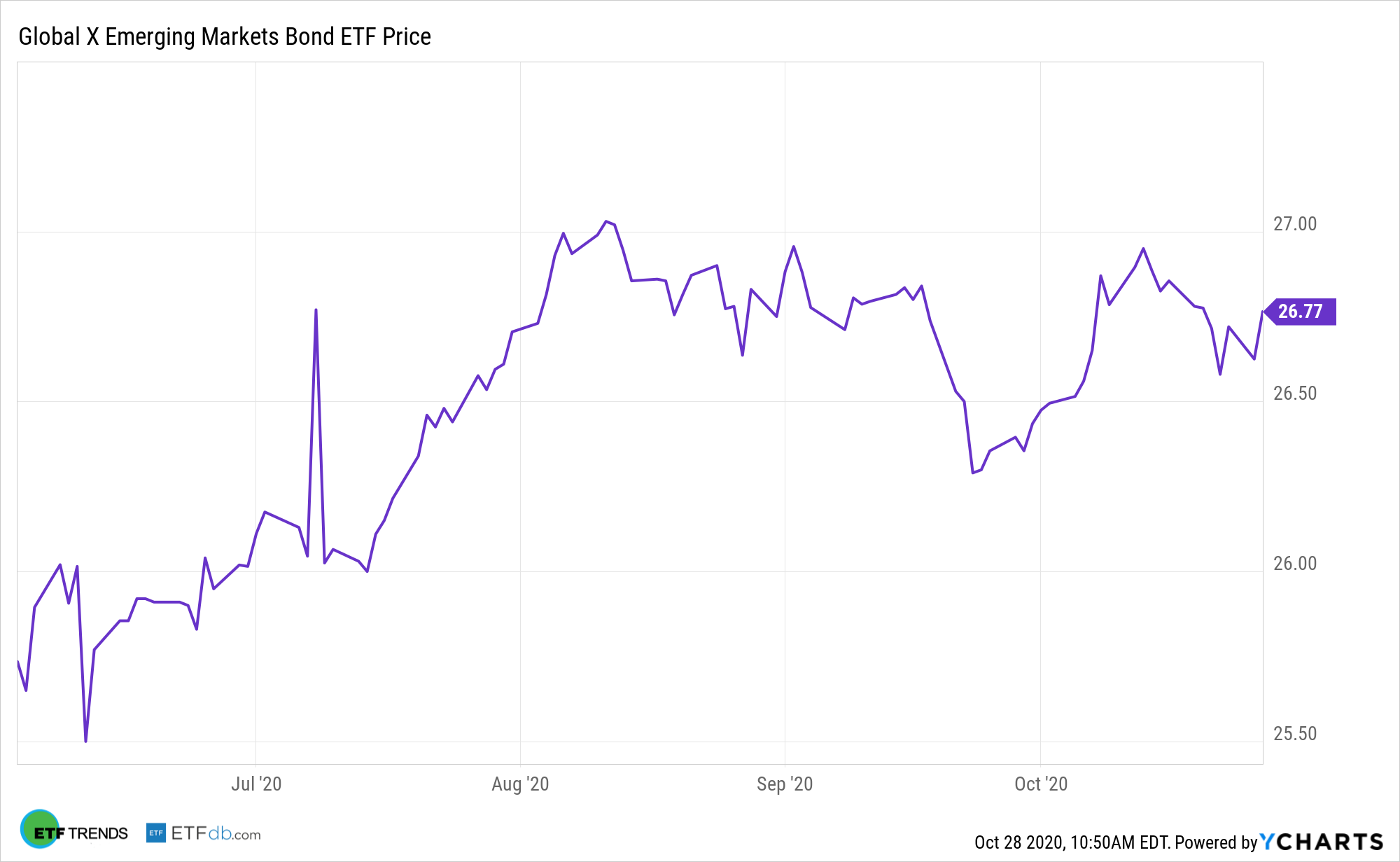Emerging markets bonds are a prime example of an asset class where active management can serve investors well. Those investors now have more options thanks to the recent arrival of the Global X Emerging Markets Bond ETF (EMBD).
EMBD aims to provide investors with strategic exposure to the growing universe of emerging market debt. With a total market size of $26 trillion, emerging market debt represents more than 20% of the global bond market and is a common fixture in income-oriented portfolios. The Fund primarily invests in emerging market debt securities denominated in U.S. dollars, however, the Fund may also invest in those denominated in applicable local foreign currencies. Securities may include fixed-rate and floating-rate debt instruments issued by sovereign, quasi-sovereign, and corporate entities from emerging market countries.

In the third quarter, EMBD “outperformed its benchmark, the JPMorgan EMBI Global Core Index, by 72 basis points, primarily due to security selection of corporate issuers. EMBD took advantage of price dislocations caused by forced selling in the market and invested in fallen angels and downgraded corporate issuers,” according to Global X research.
Evaluating EMBD: Seasoned Management
EMBD taps the expertise of tenured Mirae Asset portfolio managers Joon Hyuk Heo and Ethan Yoon, who have combined industry experience totaling more than 35 years. The portfolio managers are supported by more than 20 professionals around the globe from Mirae Asset’s Investment, Global Macroeconomic Strategy, and Emerging Markets Research Teams. EMBD’s country allocation will be based on factors including, but not limited to, economic indicators and conditions, industry structure, terms of trade, political environment and geopolitical issues. The portfolio managers will additionally seek to identify potential corporate and sovereign opportunities in support of bolstering EMBD’s risk-adjusted returns.
In recent years, some yield-starved investors embraced emerging markets debt as a way of increasing income.
As the global economy continues to expand, many will increase consumption of raw materials to fuel the expansions, which in turn would support most of the emerging markets that help supply the raw commodities, such as oil and metals.
“EMBD’s overweight positions and security selection in corporate issuers within Brazil’s pulp paper sector positively contributed to relative performance, while local currency depreciation helped improve issuers’ earnings profiles,” according to Global X. “An overweight in Moroccan phosphate producers also positively contributed, as phosphate prices rose. Overweight positions and security selection within Colombia and India also contributed to outperformance, with macroeconomic conditions in both countries improving with the easing of lockdown measures. The fund’s underweight positions in Argentina and sub-Saharan African issuers also had a positive contribution.”
For more alternative investing ideas, visit our Alternatives Channel.
The opinions and forecasts expressed herein are solely those of Tom Lydon, and may not actually come to pass. Information on this site should not be used or construed as an offer to sell, a solicitation of an offer to buy, or a recommendation for any product.








